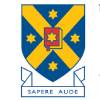362 Leith Street Dunedin 9016, New Zealand
Career Counselling

The University of Otago, which has its main campus in Dunedin, New Zealand, is the oldest university in New Zealand; it was founded in 1869 and commenced operations in 1871.
Departments and schools at the University are organised into four Divisions: Health Sciences, Humanities, Sciences, and Commerce (known as the Otago Business School). Together, these divisions offer more than 200 undergraduate and postgraduate courses and diplomas.
The University has five campuses spread over the North and South Islands of N...
| Establishment year | 1869 |
| Total Students | 19,603 (2021) |
| International Students | 1,690 (2021) |
| QS World University Rankings 2024 | 206 |
| Campus Size | 111 acres |
| Total Number of Campuses | 5 |
| University Website | https://www.otago.ac.nz/ |
| No. of Schools and Divisions | 4 Divisions (Health Sciences, Humanities, Sciences, Commerce) |
| Nobel Prize Winner Alumni | 0 |
| No. of Education Programs | 47 (undergraduate), 86 (postgraduate) |
| Student to Faculty ratio | 12.6:1 |
The University of Otago offers undergraduate and postgraduate courses through four Divisions, which are further subdivided into schools and departments.
Domestic students applying for an undergraduate degree will need to show Level 3 qualifications in the NCEA; they can also submit grades from the CIE, IB, or NZ secondary school examinations. In the event that an applicant does not have the requisite academic background, he / she can explore the various Foundation programmes offered by the University. The grades in English reading and writing in the NCEA (or equivalent) examination are taken into consideration when gauging proficiency in English.
International applicants for undergraduate degrees at the University of Otago must first check the academic entry requirements for their country of origin from the relevant University webpage. IB and CIE scores can be used here as well. Many different certificates of recent tests can be provided in support of English proficiency: TOEFL, IELTS, PTE, distinction-level marks in Year 12 examinations, and various NZ English examinations. Finally, high school transcript scans, a certified copy (by a public notary) of the personal details passport page, and course-specific documents will also need to be provided. A copy of birth certificate can also be provided for this purpose, in lieu of a passport scan.
Applicants to postgraduate degrees must provide transcripts of their undergraduate academic performance, and the degree certificate, if available. Candidates for research / PhD admission must also provide a CV, a research proposal, the name of the member of academic staff who has agreed to supervise their research, and a planned start date.
The admission process for all students (domestic or international, undergraduate, postgraduate taught, or research) consists of the following steps:
Domestic undergraduate students pay fees that vary by degree; for example, Computer Science, Music, and Science UGs from New Zealand pay $7,609 per year as tuition fees, and most other departments charge fees that are within 10% of this figure, except for Dentistry and Medicine, which charge $16,914 annually. The New Zealand Government pays up to $12,000 to cover the tuition costs for undergraduate domestic students; this usually covers a little more than a year of full time education. Australian students who study at one of the Otago campuses pay domestic fees, though distance education candidates from Australia pay international tuition fees.
International undergraduates pay fees that vary by academic Division. For example, in the Health Sciences Division, annual tuition fees are between $40,000 and $50,000 for most courses, though Dentistry fees can go up to $100,000 per year. Humanities course fees are between $32,620 (for example, for Philosophy) to $37,912 (Psychology) per year. The Otago Business School charges between $35,000 and $40,000 for most UG courses per year.
Domestic postgraduate students pay tuition fees that are between $8,000 and $10,000 annually in most departments; however, the MDS degree in dentistry goes up to $39,552.
International postgraduates typically pay between 10% and 30% higher fees that international UG students in the same Division; for example, Master’s courses in the Otago Business School correspond to tuition fees of $53,291 per year, and the 15 month MBA degree costs approximately $63,328.
Living costs, which are common to both UG and PG students, are estimated by the University to range between $22,220 and $24,335 per year, with accommodation and food forming 75% of that total, and the balance being spent on personal costs, entertainment, travel, and insurance.

The University of Otago campuses occupy a total of 111 acres, with almost 55,000 acres of additional endowment land owned by the university. There are five campuses spread across New Zealand. The main campus is located in the South Island city of Dunedin: the administrative departments and four academic divisions are located here. The Auckland campus mainly contains the distance education and course information departments. The Christchurch campus is home to the Health Sciences Schools. The Invercargill campus hosts the Health Sciences Study Hub and the College of Education. The Wellington campus contains more modules within Health Sciences. These provide extensive academic facilities: for example, the libraries across the campuses contain more than 1.2 million books.
The university aims to provide world class fitness and health facilities for students, staff, and community members to use. From weight rooms to functional training zones to cardio equipment, the gym provides something for everyone, complete with extensive changing spaces. There is also a space for recreational games: pool, foosball, and table tennis. Through the School of Physiotherapy, high level athletes at the university and members of the public can work on injury rehab and recovery. Indoor sports such as basketball are also available.

For the serious athletes at the University of Otago, inter-college competitions exist: from the Collegiate Sports Day to the Rugby 7’s Festival. The University also sends teams to the University Tertiary Sport New Zealand competitions in multiple sports, including volleyball, basketball, and netball. Inter-college competitions also often feature cultural evenings and contests: from battle of the bands events to quiz nights.
The Career Development Centre at the University is the hub that connects students with potential employers. It provides information, resume services, advice and guidance, and interview preparation to students. It also organises career seminars and fairs where students and recruiters can connect in person, and floats internship and job opportunities on the MyCareerSpace online portal.
The high cost of study at the University of Otago leads many international students to apply for scholarships. The application process is simple, with most students being considered for eligible scholarships based on their admission submission, rather than having to apply separately. Additional scholarship-relevant details (academic excellence, leadership experience, financial circumstances) must be filled in eVision, after the enrolment process is completed. The window for application opens on 1 July every year, and most scholarships require submissions to come in before 15 August.
For international undergraduate students, the Vice-Chancellor’s Scholarships for International Students are available for the first year of study, and come with a $10,000 award towards tuition fee costs. The New Frontiers Excellence Scholarship pays between $2,000 and $4,000 to international students who have completed a Foundation course in NZ prior to starting a UG course at Otago, and to domestic students. Finally, the University of Otago 150th Entrance Scholarships pay $13,000 over two years to students who demonstrate academic excellence and who have a significant financial need.
Postgraduate scholarships include the Otago International Excellence Scholarships, worth $10,000, the University of Otago Coursework Master's Scholarship, which awards $10,000, and the University of Otago International Master's Research Scholarship, which entails a stipend of $16,000 per annum, in addition to a partial tuition fee waiver.
